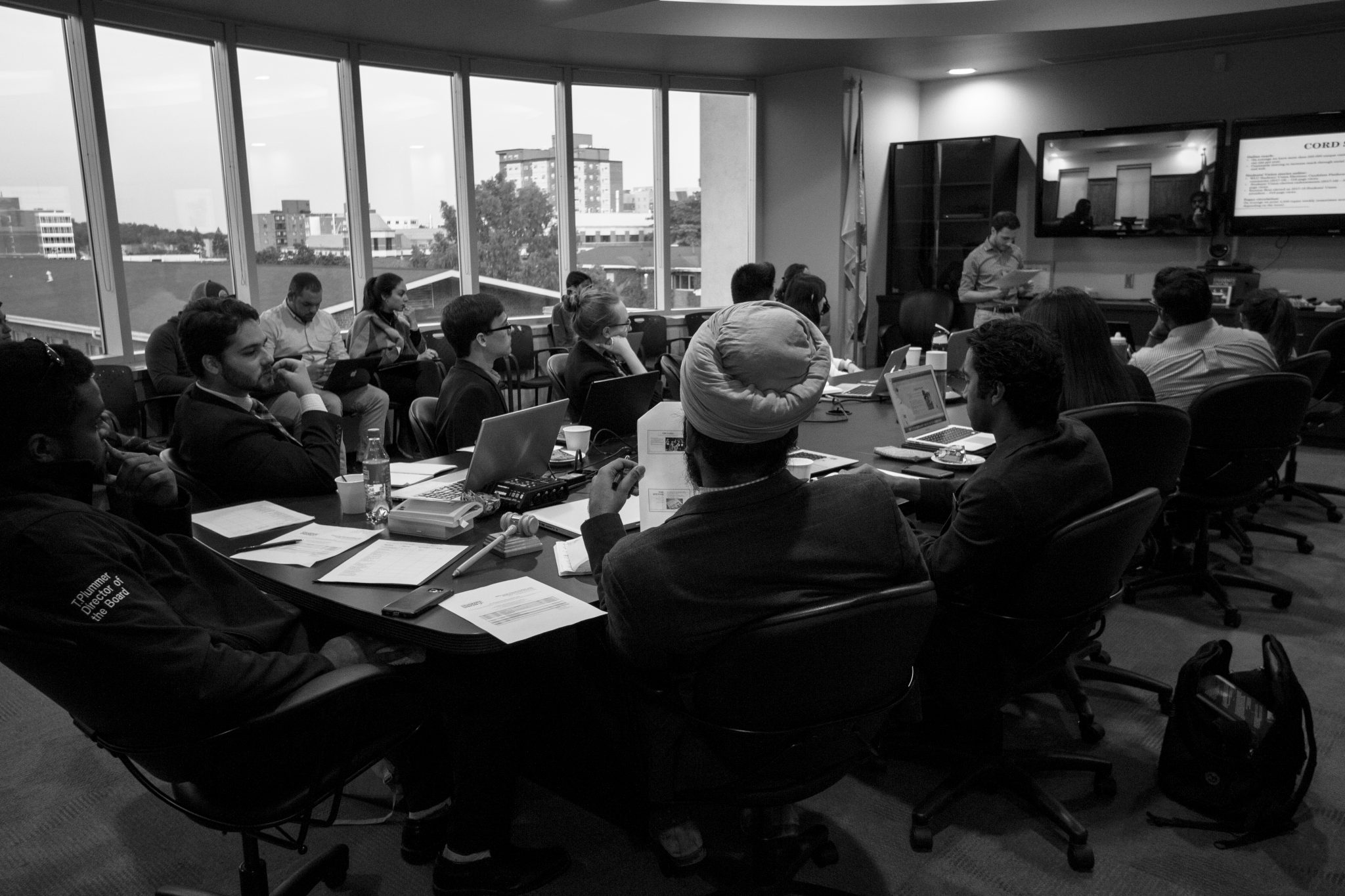Students’ Union Directors explore topics of referendum questions


An emergency Board of Directors meeting called in late December reveals that the Wilfrid Laurier University Students’ Union has faced some difficulty in prepping questions for the upcoming referendum.
The Students’ Union elections, which will be held from Jan. 30, 2018 to Feb. 1, 2018, will let Laurier students cast their ballots online to decide on, not just the individuals who will fill the various positions in the Students’ Union, but also whether to approve or reject several referendum questions.
It was these referendum questions that were the primary subject of the emergency board meeting.
Students’ Union director and chair of the elections committee, Muhammad Talha Naeem, explained why the Students’ Union poses referendum questions and what their role is in facilitating the process.
“Referendum questions are an opportunity for the larger student body … students have an opportunity to amend and change things around campus related to the Students’ Union,” Naeem said.
Naeem noted some examples of initiatives that had their origin with referendum questions, including funding for the Student Life Levy, a scholarship program for international students, as well as the creation of a new fee to support the Brantford Athletic Complex.
“They can pose a question, a request, to the larger student body and 17,000 undergraduate students will vote on it. Anything related to undergraduate students will be there and students vote for it if they like it and if they don’t like it,” Naeem said.
On the matter of which questions are presented for students to vote on, Naeem explained that the Students’ Union’s main role is not to decide which questions to pose, but rather to vet questions to make sure that they are free of legal or technical problems.
“There is a process to it. First, we make — I made — an appeal personally as chair of elections this year … I made a request to the larger student body, and marketed to anyone with a referendum question to please come forward, follow this format, submit your question,” Naeem said.
The agreement states that before submitting a question regarding the funding of LSPIRG or other campus groups with similar agreements, support from at least five per cent of the student body must be gathered via petition or vote.
“Once the question is approved, there is a committee that sits, and that committee prepares the questions, compiles them, and goes through those questions, and then they are presented to the board,” Naeem said.
“Now the board does not approve or disapprove the question based on what kind of impact it will have on students, whether it will make the life of students better or it will make it worse. The job of the board of directors of the Students’ Union is not that,” Naeem said.
“The technical details and legal details, those are what the Board scans … and if the question is free of legal errors and free of technical errors, then the question is posted on the ballot for the students to decide whether they should approve or disapprove it,” Naeem said.
However, the emergency board meeting on Dec. 19, 2017, which was called to address one of the candidate referendum questions, has shown that this process does not always unfold smoothly.
The question, as stated in the Students’ Union Board of Directors meeting agenda package from Dec. 7, is “Starting in the Fall 2018 school term, and continuing forward until such time decided by a subsequent referendum, the Laurier Students Public Interest Research Group (LSPIRG) fee should be changed to be opt-in as opposed to opt-out.”
LSPIRG, which is described on its website as “an incorporated not-for-profit organization that helps to develop advocacy tools and avenues for action,” gets a proportion of its funding from a fee that is automatically charged to Laurier students. Students have the option of not paying if they go through the process of opting out.
Initially, the wording of the question was approved by the Students’ Union, but it was brought to the attention of the board that it had not actually been through the proper processes to make it to the ballot.
At the emergency meeting in late December, the board decided to remove the question from consideration because it violated an agreement the Students’ Union has with LSPIRG about how questions are put forward.
The agreement states that before submitting a question regarding the funding of LSPIRG or other campus groups with similar agreements, support from at least five per cent of the student body must be gathered via petition or vote.
“What really happened is that there is a clause that has a longer process [for putting a question regarding LSPIRG funding on the ballot],” Naeem said.
“The problem was the person who submitted the question has not followed the full process.”

